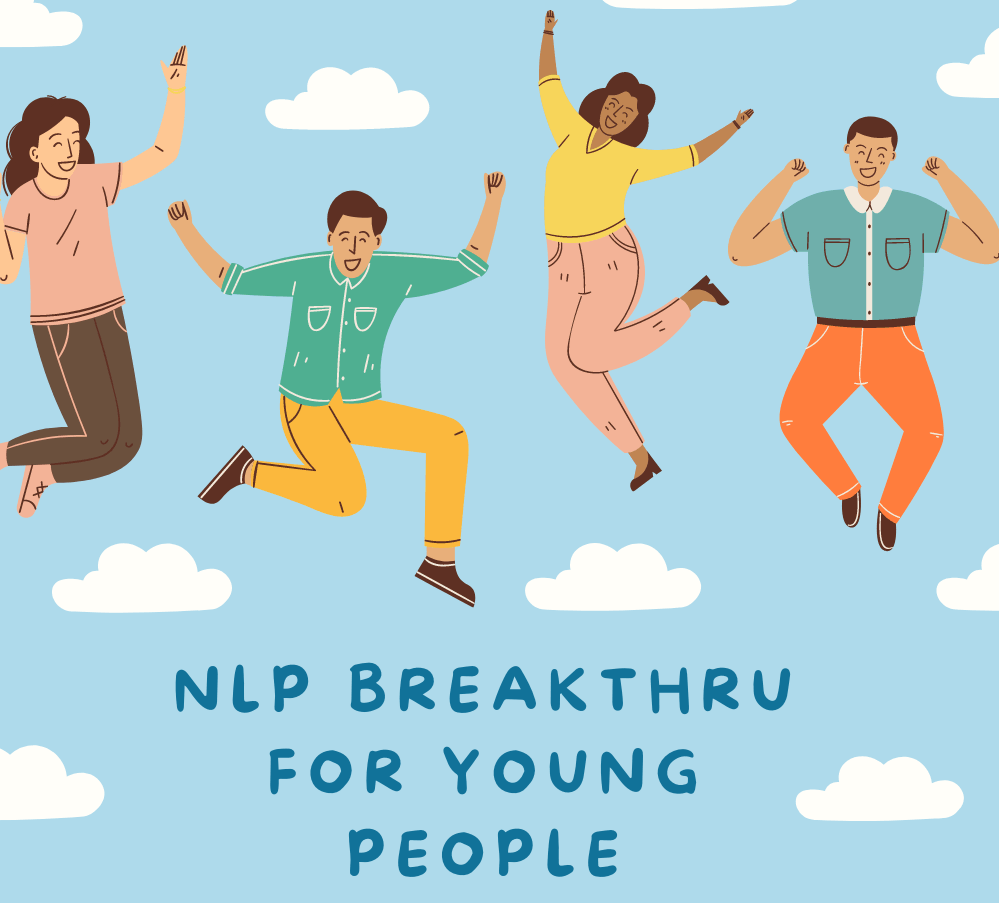Empowering Young Minds: The Potential of Neuro-Linguistic Programming

Neuro-Linguistic Programming (NLP) offers a powerful approach to transforming the mindset of young people, equipping them with essential tools for personal growth and success. NLP, developed by Richard Bandler and John Grinder in the 1970s, explores the relationship between language, thoughts, and patterns of behaviour. By understanding and reshaping these connections, NLP practitioners can help young individuals overcome limiting beliefs, build resilience, and achieve their full potential.
NLP techniques can be particularly beneficial for young people facing various challenges, such as low self-esteem, academic stress, and social anxiety. Through visualization exercises, goal setting, and reframing negative thoughts, NLP helps cultivate a positive mindset and empowers young minds to overcome obstacles. By promoting self-awareness and enhancing communication skills, NLP enables young individuals to develop healthy relationships and navigate social interactions more confidently.
Moreover, NLP provides valuable strategies for managing emotions and building resilience in the face of adversity. Techniques like anchoring, which associates positive emotions with specific triggers, and timeline therapy, which helps release past negative experiences, enable young people to regulate their emotions and develop a more optimistic outlook on life. These skills not only enhance their emotional well-being but also equip them with essential life skills for future success.
NLP interventions for young people can take various forms, including workshops, coaching sessions, or even integrating NLP principles into educational curricula. By fostering self-awareness, building confidence, and nurturing a growth mindset, NLP empowers young individuals to recognize their potential, set meaningful goals, and take proactive steps towards achieving them.
While NLP is not a substitute for professional therapy or counselling, it can serve as a valuable complementary approach to support the personal development and mindset of young people. By harnessing the power of language and thoughts, NLP offers a promising avenue for helping young individuals cultivate resilience, embrace positivity, and unlock their true potential.
References:
- Dilts, R. (2003). Encyclopedia of Systemic Neuro-Linguistic Programming and NLP New Coding. NLP University Press.
- Hall, L., & Belnap, D. (2000). The sourcebook of magic: A comprehensive guide to the technology of NLP. Crown House Publishing.
- O'Connor, J., & Seymour, J. (2012). Introducing NLP: Psychological Skills for Understanding and Influencing People. Harper Element.
